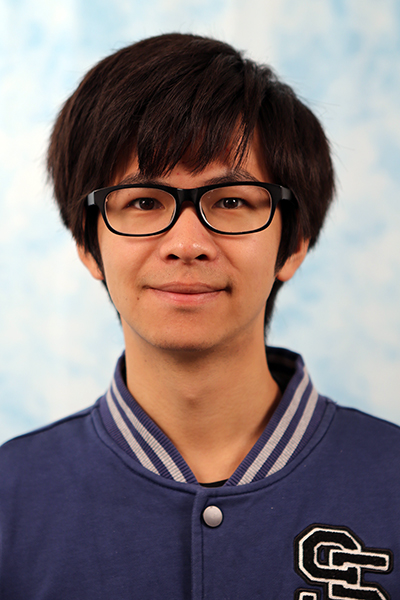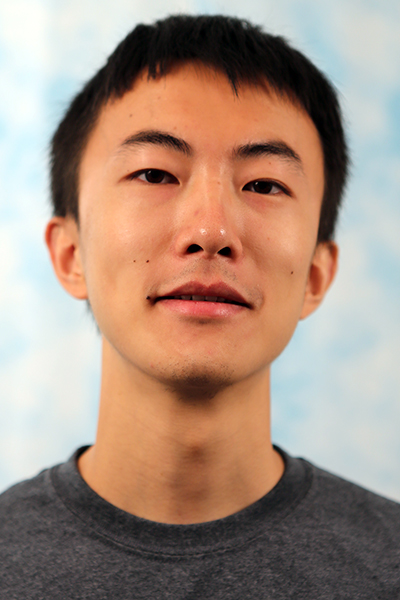Student Talks
MonoClothCap: Towards Temporally Coherent Clothing Capture from Monocular RGB Video
Abstract: We present a method to capture temporally coherent dynamic clothing deformation from a monocular RGB video input. In contrast to the existing literature, our method does not require a pre-scanned personalized mesh template, and thus can be applied to in-the-wild videos. To constrain the output to a valid deformation space, we build statistical deformation [...]
Carnegie Mellon University
Robust Manipulation with Active Compliance
Abstract: Human manipulation skills are filled with creative use of physical contacts to move the object about the hand and in the environment. However, it is difficult for robot manipulators to enjoy this dexterity since contacts may cause the manipulation task to fail by introducing huge forces or unexpected change of constraints, especially when modeling [...]
Carnegie Mellon University
Open-world Object Detection and Tracking
Abstract: Computer vision today excels at recognizing narrow slices of the real world: our models seem to accurately detect objects like cats, cars, or chairs in benchmark datasets. However, deploying models requires that they work in the open world, which includes arbitrary objects in diverse settings. Current methods struggle on both axes: they recognize only [...]
Policy Decomposition : Approximate Optimal Control with Suboptimality Estimates
Abstract: Owing to the curse of dimensionality, numerically computing global policies to optimal control problems for complex dynamical systems quickly becomes intractable. In consequence, a number of approximation methods have been developed. However, none of the current methods can quantify by how much the resulting control underperforms the elusive globally optimal solution. We propose Policy [...]
Inverse Reinforcement Learning with Explicit Policy Estimates
Abstract: Various methods for solving the inverse reinforcement learning (IRL) problem have been developed independently in machine learning and economics. In particular, the method of Maximum Causal Entropy IRL is based on the perspective of entropy maximization, while related advances in the field of economics instead assume the existence of unobserved action shocks to explain [...]
Carnegie Mellon University
MSR Thesis Talk – Hans Kumar
Title: Multi-Session Periodic SLAM for Legged Robots Abstract: Methods for state estimation that rely on visual information are challenging on dynamic robots because of rapid changes in the viewing angle of onboard cameras. In this thesis, we show that by leveraging structure in the way that dynamic robots locomote, we can increase the feasibility [...]
Learning to Compose Hierarchical Object-Centric Controllers for Robotic Manipulation
Abstract: To perform manipulation tasks in the real world, robots need to operate on objects with various shapes, sizes and without access to geometric models. It is often infeasible to train monolithic neural network policies across such large variance in object properties. Towards this generalization challenge, we propose task-axis controllers, which are defined relative to [...]
Carnegie Mellon University
MSR Thesis Talk: Eagle Dapeng Zhao
Title: Predicting Human Trajectories by Learning and Matching Patterns Zoom Link: https://cmu.zoom.us/j/93356993095?pwd=Nzd3a09PbG9mVkV5blFVaU5nRk1GQT09 Abstract: As more and more robots are envisioned to cooperate with humans sharing the same space, it is desired for robots to be able to predict others' trajectories to navigate in a safe and self-explanatory way. We propose a Convolutional Neural Network-based approach [...]
Causal Reasoning in Simulation for Structure and Transfer Learning of Robot Manipulation Policies
Abstract: Real-world environments, such as homes, hospitals, and restaurants, often contain many objects that a robot could possibly manipulate. However, for a given manipulation task, only a small number of objects and object properties may actually be relevant. This talk presents CREST (Causal Reasoning for Efficient Structure Transfer), our approach to learn the relevant state [...]
Grasping Transparent, Specular, and Deformable Objects
Abstract: A large body of research exists on grasping for objects with ideal properties like Lambertian reflectance and rigidity. On the other hand, real-world environments contain many objects for which such properties do not hold, such as transparent, specular, and deformable objects. For such objects, new approaches are required to achieve the same level of [...]







